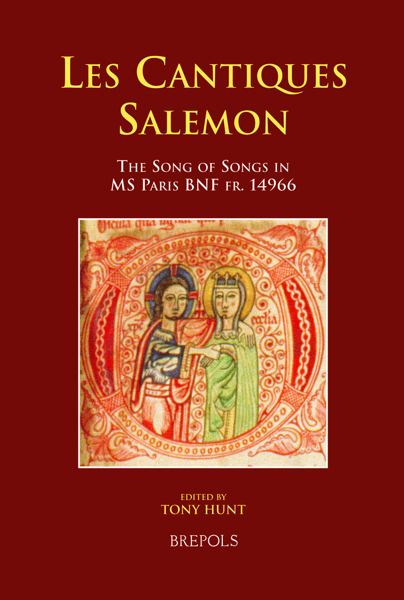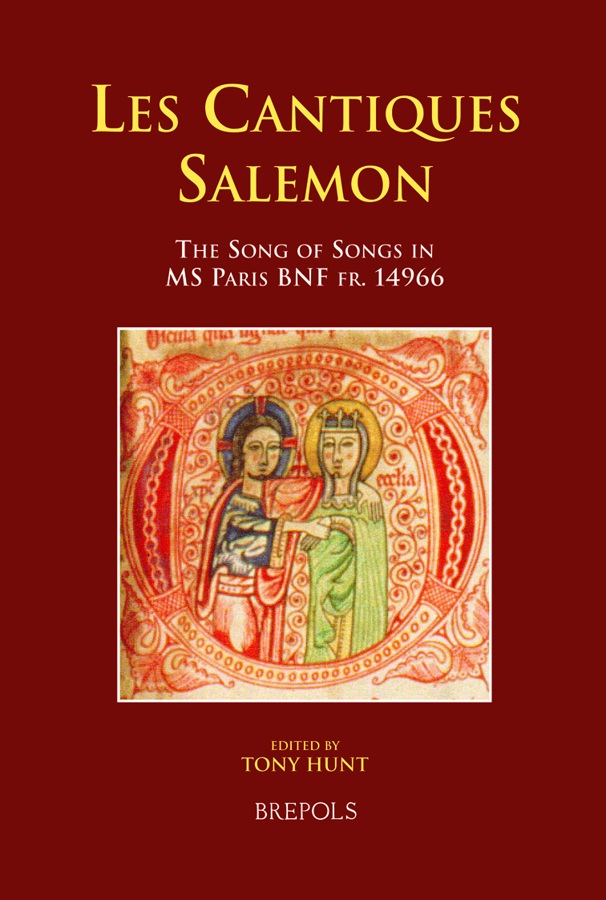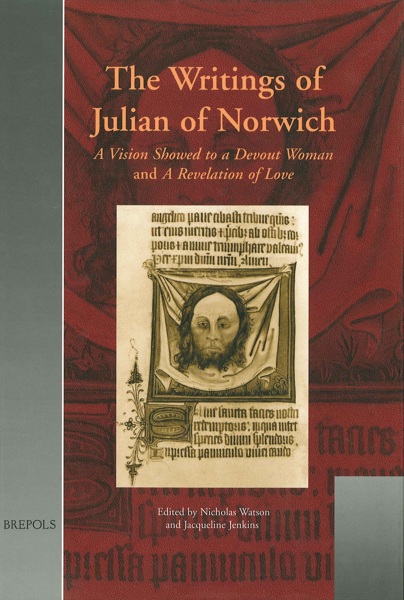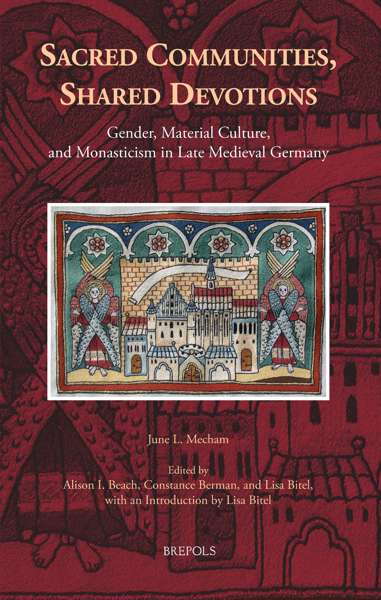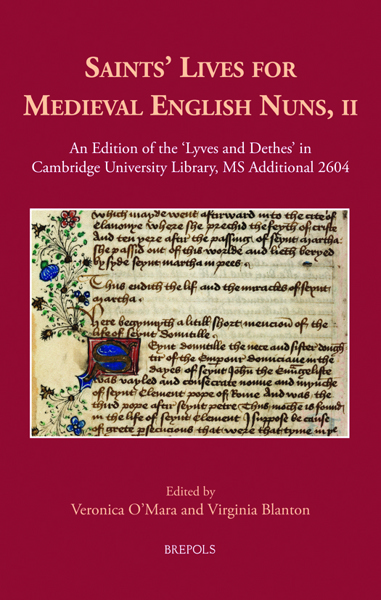
- Pages: 256 p.
- Size:160 x 240 mm
- Language(s):English, Middle French
- Publication Year:2006
- € 40,00 EXCL. VAT RETAIL PRICE
- ISBN: 978-2-503-51806-0
- Hardback
- Available
- € 40,00 EXCL. VAT RETAIL PRICE
- ISBN: 978-2-503-56242-1
- E-book
- Available
This volume contains the first critical edition of the latest of the three medieval French adaptations of the Song of Songs.
"L'edizione di Hunt è insomna pregevole sotto piú rispetti: fornisce un'edizione condotta con mano sicura, permette di analizzare nel dettaglio la fisionomia dello stile di un autore devoto (e di cogliere la feconda ambiguità della commistione fra registro pieux e riuso del canto cortese), riconosce nel campo della storia delle idee religiose le ragioni dell'intreccio fra pastiche devozionali e produzione testuale in volgare." (E. Burgio in Medioevo Romanzo, vol. XXXII, Fasc. 1, 2008, p. 215-216)
There are three medieval French adaptations of the Song of Songs, each reflecting a distinct exegetical tradition. The latest of these three, here edited for the first time (from BNF fr. 14966), adopts the tropological interpretation according to which the Song depicts the relationship of the individual soul with God. The mystical, contemplative approach owes much to Bernard of Clairvaux, William of St Thierry, and Thomas the Cistercian, and this Cistercian tradition also has close links with the Beguines, a connection which receives detailed exploration in the editor's extensive Introduction. Writing in the late-thirteenth century in north-eastern France, the author of the Cantiques is aware of such an association and not only engages in the familiar procedures of allegorization, but, more originally, inserts into his commentary eight lyrics which are modelled on known secular chansons which receive full attention from the editor. Within the text, which covers Song 1. 1 to Song 3. 11 in 2544 octosyllables arranged in eight-line stanzas, speeches are assigned to Sponsus, Sponsa, Magister, and Religio. The Cantiques Salemon is the work of a poet rather than of a theologian, reflecting many elements associated with 'la courtoisie mystique', which in turn is characteristic of writing for the Beguines. The editor provides a detailed summary of the text, full glossary and notes as well as an account of the language. To these is added a study of the poet's principal literary techniques, involving both the varied processes of translation and the elaboration of a network of links between stanzas together with the imprint of a personal, lyric quality on the whole.
